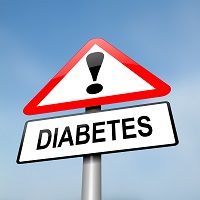Article
Side-by-Side Comparison of the Effects of Treatment with Canagliflozin and Sitagliptin on Blood Glucose Levels and Weight Loss
Author(s):
Researchers compared canagliflozin and sitagliptin treatment on HbA1c levels and body weight in patients with type 2 diabetes mellitus.

Two relatively new drugs commonly used to treat patients with type 2 diabetes mellitus are the topics of discussion in relation to liver function tests (LFTs).
By gathering data collected from 2 year-long phase 3 studies, lead author Lawrence A. Leiter, MD, and colleagues observed how canagliflozin and sitagliptin cause changes to blood glucose levels (A1c) and body weight (BW). The study will be presented in a poster session on June 7 at the American Diabetes Association 75th Scientific Sessions in Boston, MA.
In order to find which of the 2 medications were more effective, researchers analyzed information from 1,466 patients with type 2 diabetes. The team measured levels of HbA1c, BW, and alanine aminotransferase (ALT).
“Patients were divided into deciles by ∆HbA1C or ∆BW; median ∆A1C and ∆BW were calculated in each decile,” the authors wrote. “ANCOVA was performed to assess the contributions of ∆HbA1C and ∆BW to ∆ALT.”
The doses used were 300 mg for canagliflozin and 100 mg for sitagliptin. However, even when adjustments were made to make up for the difference the results revealed the same thing. Upon investigation, it was found that the larger HbA1c and BW reductions correlated with larger ALT reductions. The findings indicated that canagliflozin provided the greatest reduction in all 3 of the categories — HbA1c, BW, and ALT.
“[Canagliflozin] improves glycemic control and lowers BW, both of which have been shown to improve LFTs,” the study confirmed.




